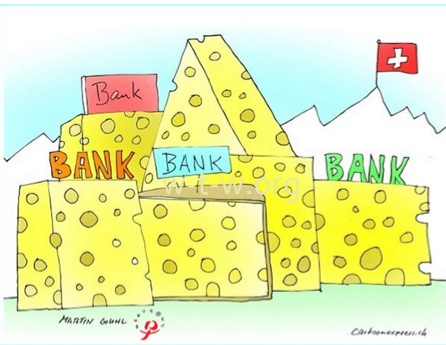Faced with a popular Greek opposition party, Syriza, which demands that Europe either reduce Greece’s debts or watch Greece walk out of the eurozone, German Chancellor Angela Merkel has not blinked and therefore has neutralized the bargaining position Syriza hoped for.
Greece’s creditors – in the main, the governments of northern European Union countries, the IMF and the World Bank – are unfazed by Greek threats.
There are still creditors tied to Greece, but they have changed. Greece’s creditors are governments and international organizations, and not banks and pension funds, nor companies whose downfall would immediately affect millions of citizens in predominantly northern European countries,
The original rescue operation was a huge bailout – but in the form of quick money that was used to pay off Greek debts to German, French, and Dutch financial institutions.
At the beginning of the crisis, a Greek default would have seen banks and pension funds in the tank, resulting in renewed panic on financial markets still reeling from the credit crisis. Now the risk of contagion – with banks in Italy, Spain, and Ireland crashing like dominoes stones as investors flee – has largely subsided.
Instead, Greece now owes billions of euros to EU countries, the IMF, and the World Bank, among others. These creditors do not easily default. The hit they would take would be one they could bear. Meanwhile, a default and an exit from the European Union wouldn’t help Greece at all..
The first thing Greece would have to do it it exited the euro and the EU is organize stringent capital controls to prevent Greeks from moving their euros to other countries, which would effectively end any economic activity still going on in the country.
Second, Athens would have to quickly introduce a new currency, which would immediately crash against the other main currencies.
For Greek bonds, a new level below junk status would have to be invented. Within 24 hours Greece would be a financial pariah, paying huge interest rates and risk premiums, while its existing loans would balloon, as most loans outstanding to its foreign creditors would still have to be paid in euros. Greece would be Europe’s Zimbabwe, with the local economy in tatters; rampant inflation; and mass unemployment.
So Syriza leader Alexis Tsipras stood on the ledge, Merkel folded her arms, smiled told him to go ahead and jump. And now Merkel wonders whether Tsipras understands that he may call himself Greece’s new prime minister after Jan. 25, but he still won’t be the one holding any power.











